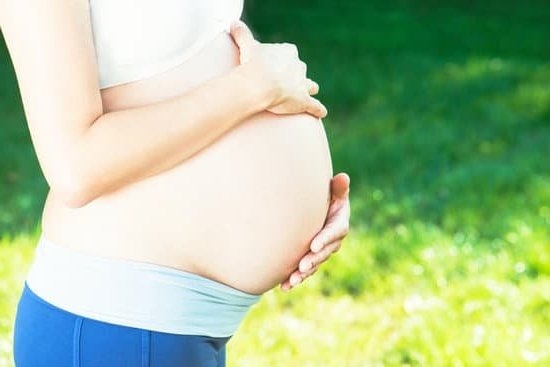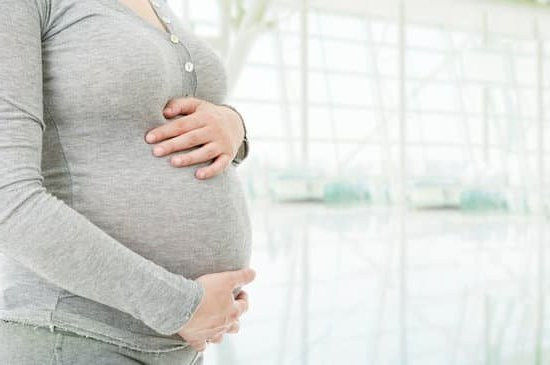Introduction
Pregnancy is a time of immense physical, social and emotional changes in the lives of expectant mothers. However, when pregnant women suffer from liver disease this can sometimes have serious impacts on not just herself, but also the baby she carries. Liver disease can appear during pregnancy or be exacerbated due to the additional stress that expecting a child puts on the body. Common causes of liver disease during pregnancy include preeclampsia and hepatitis B or C infections. In some cases, obesity and Type 2 diabetes can increase the risk for developing liver diseases especially in those already affected by viral hepatitis or autoimmune conditions such as primary biliary cirrhosis (PBC).
For expecting mothers with liver diseases, their health often impacts their fetal health as well. Adaptations during pregnancy cause an increased blood flow to the liver which can worsen symptoms associated with preexisting diseases and contribute to the progression of the illness in certain cases. These effects may cause complications including slowed fetal growth or a pregnant woman’s risk for preterm delivery or hemorrhage after childbirth; in worse cases she may have a cesarean section due to her poor medical condition. Babies born to mothers with severe preeclampsia are at greater risk for birth defects than normal infants. In addition to having higher levels of bilirubin which affects their functioning, babies may suffer from preterm birth leading to life-threatening respiratory failure necessitating immediate support within a specialized neonatal intensive care unit (NICU).
Therefore, since both mother and child may be negatively impacted by liver disease in pregnancy it is important that expectant mothers are aware of potential risks they face prior to conception and receive regular prenatal check-ups throughout each trimester from specialized physicians so as to receive an early diagnosis if necessary and ensure that appropriate treatments are administered for best maternal and fetal outcome.
Causes and Types of Liver Disease In Pregnancy
Liver disease in pregnancy is an umbrella term that can refer to many different ailments that can affect expectant mothers. Heavy alcohol consumption, viral infection and autoimmune disorders are the three most common causes of liver diseases during pregnancy.
Heavy Alcohol Consumption: This is a form of liver cirrhosis and can have serious consequences on both the mother and baby, such as dehydration, jaundice or even fetal death. It is advisable for pregnant women to refrain from consuming any type of alcohol.
Viral Infection: Viral infections such as hepatitis A, B and C can cause inflammation in the mother’s liver which may then lead to liver damage and complications for the baby. Vaccinations against these viruses are recommended prior to conception.
Autoimmune Disorders: Autoimmune disorders such as primary biliary cholangitis (PBC) or primary sclerosing cholangitis (PSC) triggers an abnormal response from the immune system which damages or destroys healthy liver tissue over time leading to scarring and impaired function of the organ. This often leads to distress and abnormal conditions during pregnancy and delivery as well as long-term health complications in both mother and baby if left untreated.
Warning Signs and Symptoms of Liver Disease In Pregnancy
When pregnant, you may experience medical conditions that can be life-threatening if not caught early. One of the most serious medical diagnosis’ a pregnant woman can receive is liver disease. Liver disease during pregnancy can be caused by a variety of metabolic disorders, including hepatitis, gallbladder obstruction, or hereditary conditions. It is important to understand the warning signs and symptoms associated with liver disease in pregnancy so that you can take action if necessary.
The most common warning signs for liver disease in pregnancy are abdominal pain, excessive fatigue and nausea, extreme jaundice (yellowing of the skin and eyes), and dark urine. Other less common symptoms include fluid retention throughout the body (known as edema), increased bleeding or bruising due to lowered platelet count, and itching of the skin due to bile acid levels rising in the blood. If any of these warning signs persist or worsen over time, it is important to speak with your doctor right away as they could indicate a serious medical disorder like liver disease. In addition to these physical symptoms, changes in your mental health should also be taken seriously; if you notice an increase in mood swings, difficulty concentrating, compulsive behaviors or eating habits you should speak with your doctor as well.
Risk Factors of Liver Disease In Pregnancy
There are a number of risk factors that can contribute to the development of liver disease in pregnant women. These include:
•Pre-existing conditions such as diabetes, obesity, autoimmune diseases, and viral hepatitis.
•Excessive alcohol intake during pregnancy. Heavy alcohol use can cause damage to the liver leading to increased chances of complications such as preterm labor, miscarriage or stillbirth.
•Infections caused by bacteria or viruses may also increase the risk for developing liver diseases during pregnancy.
•Medications used during pregnancy can increase the chances of liver injury or damage if not done properly according to your doctor’s instructions.
•Old age increases movement risks due to decreased production of naturally occurring estrogen. This hormone is important for protecting against some inflammatory conditions related to the liver.
•Untreated high blood pressure (hypertension) during pregnancy can lead to an increased risk for developing liver abnormalities associated with preeclampsia and eclampsia.
Diagnostic Tests Used to Detect Liver Disease In Pregnancy
Diagnostic tests used to detect liver disease during pregnancy are generally non-invasive. Blood tests can be used to measure levels of certain enzymes, like ALT and AST, which when elevated may hint at liver damage. Liver function tests can be used to further investigate changes in these enzymes and provide a better understanding of the extent of damage or disease. Ultrasound is also commonly utilized; it allows doctors to see inside the abdomen and examine the liver’s size, shape and blood flow through vessels. Magnetic resonance imaging (MRI) or computed tomography (CT) scans may also be employed if more detailed images are necessary. In certain cases, when a diagnosis cannot be obtained by any other method, a biopsy may be recommended. This involves taking a small tissue sample from the liver for analysis in the laboratory.
Treatment Options for Liver Disease In Pregnancy
If a pregnant woman is diagnosed with liver disease, there are several treatment options that may be employed. Depending on the individual’s situation, one or more of the following methods may be used.
1. Diet and lifestyle modifications: Eating a balanced, nutritious diet high in fiber and low in fat can be beneficial for those with liver disease. Pregnant women should also make sure to avoid alcohol and drugs, as these can have harmful effects on the liver. In some cases, exercise may be recommended as well.
2. Medication Therapy: Some medications like antiviral drugs and antibiotics can help treat certain types of liver disease during pregnancy. However, it is important to speak with your doctor about any prescription medications you are considering taking to ensure they are safe for use during pregnancy.
3. Ultrasound monitoring: An ultrasound may be recommended to closely monitor the health of the fetus while treating any underlying liver issues. This will allow doctors to watch out for potential complications such as abnormal fetal growth or abnormal levels of amniotic fluid due to changes in maternal metabolism caused by the disease itself or its treatment.
4. Surgical intervention: If necessary, surgery may also be performed if further evaluation and intervention is required due to complications arising from the condition or its treatment options during pregnancy.
Lifestyle Habits and Actions to Prevent Liver Disease In Pregnancy
Liver disease in pregnancy is a serious condition and should be taken seriously. Taking action to reduce the risk of developing liver disease in pregnancy is important for both mother and baby. Here are some lifestyle habits and actions that pregnant women can take to prevent liver disease in pregnancy:
1. Exercise regularly: Pregnant women should make an effort to engage in regular physical activities as much as they safely can, as this keeps their body fit and healthy, which may decrease their risk of developing liver-related conditions.
2. Proper nutrition: Eating a balanced diet is important for maintaining good health during pregnancy, especially when it comes to eating foods that help the body function normally, such as lean meats and leafy greens. Eating an abundance of fruit and vegetables is also beneficial for preventing liver disease during pregnancy.
3. Avoid Alcohol & Drugs: Drinking alcohol and using drugs while pregnant can put not only the mother at risk but also the fetus too. Abstaining from drinking alcohol or using any recreational drugs throughout the course of a pregnancy can help prevent any potential health risks associated with these substances.
4. Maintain Regular Doctor Visits: Practicing safe prenatal care is essential for reducing the chance of developing any type of illness during pregnancy, including potentially serious episodes such as liver diseases. It’s important for pregnant women to attend regular check-ups with their primary care doctor so that any issues can be monitored and managed accordingly by medical professionals before they become severe or dangerous.
Outlook of Liver Disease In Pregnancy for Mother and Baby
The outlook for pregnant women with liver disease is largely dependent on the underlying condition and how it is managed. In the majority of cases, outcomes can be very positive, though in some more severe cases, there may be potential complications. The earlier a diagnosis is made, the higher the likelihood of a positive outcome for both mother and baby as this will allow for timely management of the condition.
For mothers, treatments may vary depending on the condition and could involve dietary changes or medications to manage symptoms and reduce flare ups. Medical intervention and close monitoring of both mother and baby throughout pregnancy is essential.
For babies, liver disease can cause a number of different risks depending on the severity of their mother’s condition. These may include preterm birth or low birth weight, an enlarged or diseased liver at birth, jaundice (too much bilirubin in the baby’s blood), difficulty absorbing nutrients or problems related to prematurity such as respiratory distress syndrome or cerebral palsy. In more extreme cases where medical interventions are necessary during labour or delivery, there can also be increased risk of intrauterine fetal death (IUFD). Therefore proper care by an experienced team should be sought out for management, surveillance and support if needed.
Overall, if detected early enough it is possible to minimize potential complications and risks associated with liver disease in pregnancy from both antenatal care as well as active management during delivery to ensure that both mother and baby have a good outcome.
Common Questions and Answers About Liver Disease In Pregnancy
Q: What are the risk factors for pregnant women having liver disease?
A: Pregnant women may be at increased risk of developing liver disease if they are of advanced maternal age, multi-gravid, on certain medications like acetaminophen or HIV medications, have a history of alcohol or substance abuse, or have a pre-existing health condition such as hepatitis B or C. Other risk factors can include dietary and lifestyle factors such as obesity, poor diet and nutrition, smoking, and lack of exercise.
Q: What are some possible symptoms of liver disease in pregnancy?
A: Some common symptoms of liver disease in pregnancy include jaundice (yellowing of the skin and eyes), fatigue, abdominal pain/discomfort, dark urine and pale stools, bloating and loss of appetite. Additional warning signs may include intense itching (pruritus) on the palms of your hands and soles of your feet, nausea and vomiting. It is important to speak to your doctor if you experience any concerning symptoms during your pregnancy.
Q: How is liver disease diagnosed in pregnant women?
A: Liver disease can be diagnosed with blood tests that measure the levels of certain enzymes produced by the liver (AST or ALT levels). Additionally, an imaging test such as an ultrasound may also be used to help identify any areas that need further investigation. In some cases biopsies might also be necessary for proper diagnosis.
Q: What should I do if I think I have liver disease during my pregnancy?
A:If you suspect you have developed liver disease during your pregnancy it is important to tell your doctor right away so they can refer you to a specialist who can make an accurate diagnosis and recommend a treatment plan. Depending on the specific type and severity of the condition, treatments may range from lifestyle modifications to prescribed medications.

Welcome to my fertility blog. This is a space where I will be sharing my experiences as I navigate through the world of fertility treatments, as well as provide information and resources about fertility and pregnancy.





